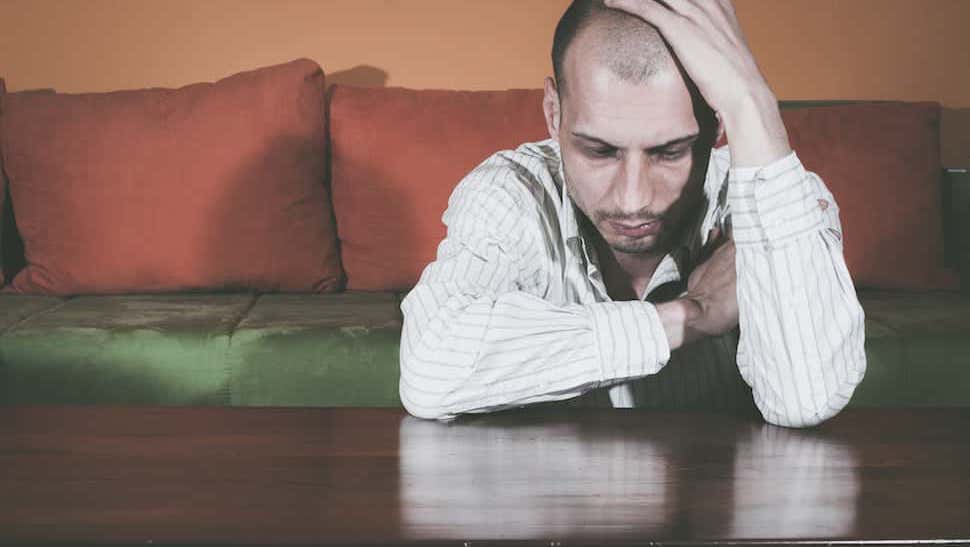
Cannabis-Induced Psychosis
Some people who use marijuana may experience acute symptoms of psychosis, including paranoia, delusions, disorganized thinking, or even hallucinations. It is not very common, but cannabis-induced psychosis can be very serious and may need to be treated. Most cases of psychosis related to cannabis are acute and temporary, but there are some troubling associations between marijuana use and the development or worsening of chronic psychotic conditions like schizophrenia. Treatment to help reduce cannabis use and to manage mental health symptoms can reverse psychosis and potentially prevent its recurrence.
What is Cannabis-Induced Psychosis?
Psychosis triggered by marijuana use is rare, but it is one of the most serious potential side effects.
Psychosis is not a condition itself, but it is a set of symptoms that can be a part of a psychotic condition or that may occur acutely and temporarily because of any one or more of various causes or triggers.
Cannabis-induced psychosis is a set of psychotic symptoms triggered by marijuana use. Many mind-altering substances have the potential to cause these symptoms, and it is less common with marijuana use than with other drugs, especially hallucinogens.
Symptoms of marijuana psychosis are characterized by a loss of touch with reality and include:
Delusions. A delusion is a false belief that a person has in spite of evidence to the contrary. For instance, a person who is delusional may believe they can play the piano when in reality they never have.
Hallucinations. To hallucinate means to experience sounds, feelings, voices, images, and other sensations that are not real. The person experiencing the hallucinations believes they are real. As an example, someone may feel insects crawling on their skin when really there is nothing there at all.
Dissociation/depersonalization. Feeling detached from reality is a common symptom of psychosis. A person may feel unattached from his or her own body, as if they are floating outside of it, or may feel as if people and things around them aren’t real.
Disorganized thoughts. Psychosis can cause a person’s thoughts to be disordered and chaotic. It can trigger persistent and disturbing thoughts as well. Other people may struggle to understand what someone is saying when that person’s thoughts are so disorganized.
Types of Cannabis-Induced Psychosis
Psychosis can be chronic, causing symptoms that persist or that return after periods of absence. With cannabis-induced psychosis, the symptoms are most often acute rather than chronic; they appear suddenly and are temporary. There is some debate and conflicting evidence as to whether marijuana use can contribute to or cause the development of chronic mental illnesses with psychotic symptoms, like schizophrenia or bipolar disorder.
There have been studies, for instance, that connect marijuana use with schizophrenia, which is characterized by hallucinations, delusions, disorganized thinking and speaking, and other psychotic symptoms. However, those studies don’t explain whether use of the drug contributes to schizophrenia, or if people with schizophrenia are more likely to use marijuana. People living with many kinds of mental illness are at a greater risk for substance misuse, and those struggling with psychosis may use marijuana as a way to self-medicate.
It does seem to be very clear from research that if a person already has a chronic psychotic condition, such as schizophrenia, that using marijuana can trigger an episode of psychosis. Studies also show that people with certain genes that predispose them to schizophrenia are more likely to develop the condition if they use cannabis. Psychotic conditions are most likely to develop while the brain is still developing, before the age of 25. So, any negative effect marijuana may have on someone predisposed to a psychotic condition will happen during adolescence and young adulthood.
Is Drug-Induced Psychosis Impacting Your Life?
Our Unique Treatment Model can Help
Facts and Statistics
Marijuana psychosis is possible but not very common. For most people who use cannabis occasionally, psychosis is not a big concern. However, some people may be more vulnerable, and there may be some lasting consequences of marijuana use for mental health.
- Cannabis is the most commonly used of all illicit drugs in the U.S.
- Cannabis-induced psychotic symptoms are rare but very serious.
- Experiencing psychosis with marijuana use is more likely in people who already struggle with some type of psychiatric disorder.
- Marijuana use may contribute to the onset of schizophrenia in young people already susceptible to the psychotic condition.
- Heavy use of marijuana by someone who has a psychotic condition, like schizophrenia, can worsen symptoms.
- The higher the potency of marijuana, based on the concentration of the main psychoactive compound, THC, the more likely it is to trigger psychotic symptoms.
Symptoms and Diagnosis of Cannabis-Induced Psychosis
Psychosis caused by cannabis use is usually acute—that is the symptoms are short-lived and are not diagnosable as any type of psychotic disorder, like schizophrenia. Psychotic symptoms, when triggered by marijuana, are most often temporary, although they can set in quickly and be troubling or alarming. The possible signs of cannabis-induced psychosis include:
- Paranoia and suspicion of others
- Disorganized thoughts and speech
- Hostility and aggression
- Delusions
- Hallucinations
- Unusual behaviors or movements
- Catatonia
Substance-induced psychosis is a recognized mental health condition that can be diagnosed. To be diagnosed, a person must show symptoms of psychosis that are different from the side effects typically expected from the use of a particular substance. The symptoms must also be clearly connected to a substance, like marijuana. Psychosis is often treated as an emergency, so this diagnosis may be made in a hospital setting.
Causes and Risk Factors
The cause of cannabis-induced psychosis is the use of marijuana. However, for many people the presence of psychotic symptoms may be more complex. For instance, there are risk factors that lead a person to misuse marijuana, such as genetics and family history of substance abuse, undiagnosed and untreated mental illness, misuse of other substances, being around other people who use marijuana regularly, and experiencing trauma or very stressful situations.
Mental illness has been implicated as a risk factor for experiencing psychosis with cannabis use. Someone who has an underlying mental illness, especially one that causes psychotic symptoms, is more likely to experience psychosis when using marijuana. The reverse is also likely to be true: that someone who experiences cannabis-induced psychosis is more likely to have an underlying mental illness, although it may be undiagnosed at the time of the psychotic experience.
Co-Occurring Disorders
People who experience cannabis-induced psychosis are more likely to actually have a co-occurring psychotic disorder, like schizophrenia or bipolar disorder with psychotic symptoms, whether it has been diagnosed or not. Psychosis triggered by other drugs is also associated with psychotic conditions, but the connection is strongest with marijuana use.
Anyone who misuses drugs at all, regardless of whether psychosis occurs, is also at a greater risk of having any mental illness, including depression or an anxiety disorder. This may be explained by the fact that someone with a mental illness may use substances to cope or self-medicate. It may also be that the use of substances, and especially with the presence of psychotic symptoms, can trigger mental illness or cause it to develop in someone already predisposed.
Treatment and Prognosis of Cannabis-Induced Psychosis
Fortunately for most people who experience cannabis-induced psychosis, which can be very troubling and disturbing, the recovery time is short. However, there are likely to be other issues that need to be addressed. For immediate treatment, a person experiencing this kind of psychosis needs to stop using the drug that’s causing it. A period of detox is necessary and is best done under medical supervision, typically in a residential treatment setting.
Ongoing treatment is then recommended for many patients, because there is likely to be some underlying mental health or substance use issues. A patient may need to be treated for marijuana addiction, for instance. They may also need to be screened for mental illnesses, including psychotic conditions, and then treated.
Treatment for substance use disorders and any underlying mental illness varies by patient but generally involves residential treatment with individualized behavioral therapies. Depending on the patient, there may also be prescription medications that can help, as well as many complementary therapies, like group support, nutrition, exercise, and creative therapies.
When someone who has experienced cannabis-induced psychosis gets both immediate and long-term treatment, the outcomes are usually very good. A person can learn to stop using marijuana and can learn to live with and manage any underlying mental illnesses.
Why Choose BrightQuest for Cannabis-Induced Psychosis Treatment?
We understand that one of the toughest decisions you can face is choosing the right inpatient treatment for cannabis-induced psychosis for the one you love. We’ve taken this journey countless times with other families who’ve come through our doors with the same questions. There are several components that make the unique BrightQuest model so successful.
- Admissions Process and Comprehensive Assessment. We provide robust in-depth assessments into our admissions process to ensure accurate diagnoses and most appropriate level of care.
- We Treat the Family. We engage the entire family in treatment so that they can become more successful in navigating life with a loved one experiencing cannabis-induced psychosis.
- Inclusive Therapeutic Community and Levels of Care. We provide clients appropriate structure, supervision, and support as they progress through treatment in a safe environment that fosters responsibility, accountability, and social connectedness.
- Lasting Behavioral Change. We offer clients the tools, skills, and support necessary to attain greater stability and independence with the confidence and courage to live a healthy, happy, and productive life.






